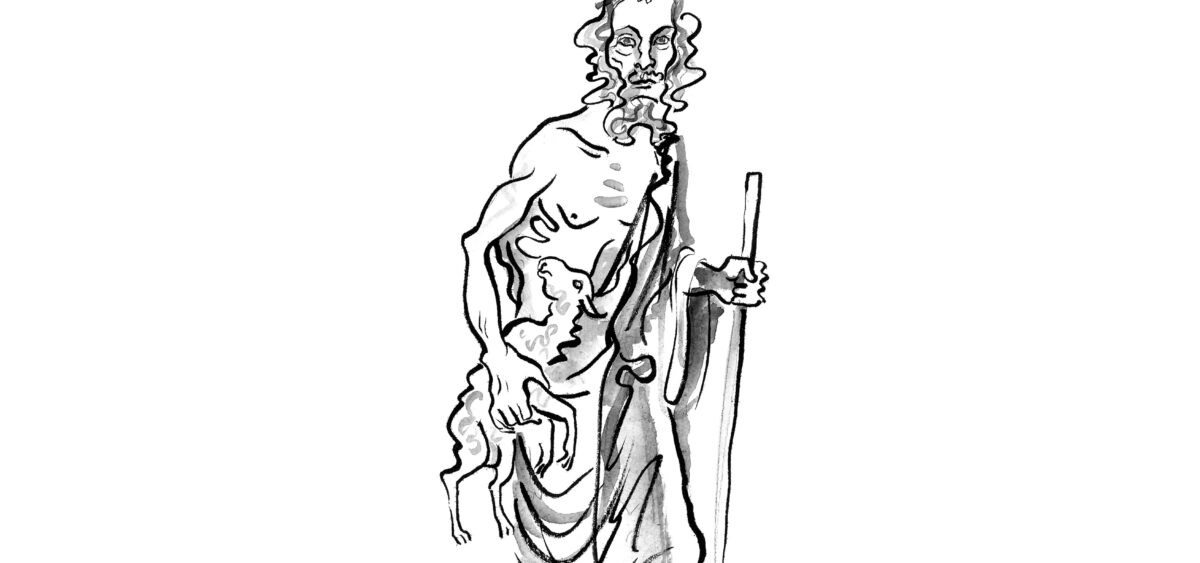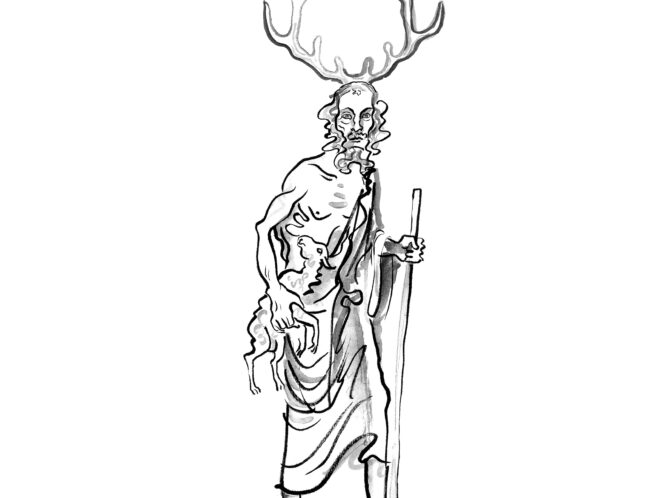
We usually imagine Druids—the Celtic priests—as old men in white robes, wise and gentle with a golden sickle raised to reach the mistletoe. Yet it appears that, even though they indeed possessed great knowledge and were highly respected, they tended to be violent—and did not necessarily have to be men.
In order to show the Druids’ barbaric habits, the Roman poet Lucan wrote that they did not officiate their rites in temples but deep in impenetrable groves. The Gauls’ sacred groves scared not only ordinary people but also the Celtic priests—Druids entered them fearing they might meet “the lord of this grove.”
The Gaulish word for temple is nemeton, but scholars have shown that originally it meant “sacred grove.” Yet another term to be found in ancient writings is drunemeton, most likely meaning “Druids’ sacred grove” or “sacred oakwood.” It is only under the influence of Greek and Roman cultures that the Gauls started building temples. They did not need them earlier—their sacred places were groves as well as hills, caves, streams, and rivers. Their traces have survived in French place names, such as Arlempdes (formerly called Arnemetum, meaning “next to the sacred grove”), Nanterre (formerly called Nemetodurum, nemeton + duron—the latter meaning “strong”; “resilient”) and Vernantes (uer-nemeton, meaning “the big grove”).
Trees in Blood
While the Slavs’ sacred groves fell victim to Christian missionaries, the Celts’ sacred spaces were destroyed by the Romans. It seems that there were several reasons, one of them being that the rituals taking place in the groves were extremely cruel.
Lucan described them with a sense of disgust. According to the poet, Druids would splash the trees with the blood of the people who were sacrificed there. According to Julius Caesar (whom I am going to refer to often, as his Gallic Wars is a priceless source of information on ancient Druidism), Druids made sacrifices in the name of those who wanted to earn the favour of the immortal beings. Among the most often sacrificed were war prisoners and criminals. Some scholars argue that it was a practical solution: both needed to be fed






